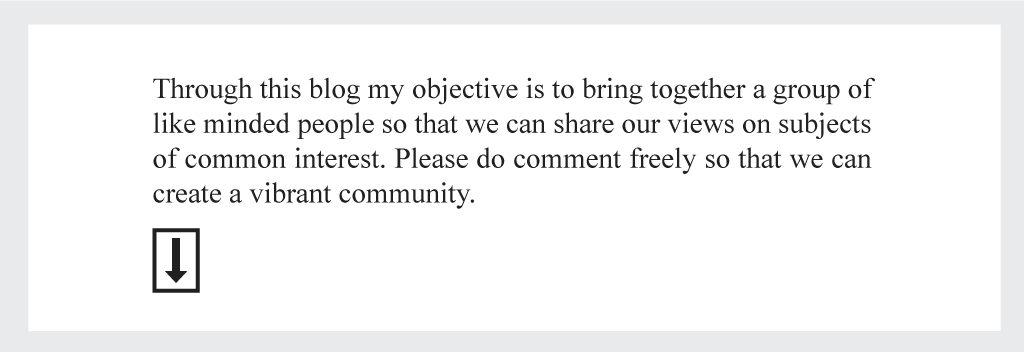Our Future
In my previous article titled Pandemics, Science and the future of humanity, I ended with a question about our future considering the advances made in the field of medicine and biotechnology which could possibly eradicate most of the fatal diseases that afflict mankind and may also prolong the lifespan of humans to 150 years and beyond. Obviously, our planet has certain limits on its population carrying capacity. The actual maximum number that earth can hold has been an oft debated subject. The number ranges from 3.5 billion which was suggested in early 19th century (obviously no longer valid) to 8 billion (where we presently stand) to 13 billion according to some scientists. Since there is no empirical data to support any of these numbers and the variables are so many, these figures can at best be called “educated conjecture”. Any number predicted may be questionable but the fact that there is a maximum number that our planet can carry is undisputed.
As I mentioned in my previous article, covid-19 has ushered in the era of mRNA technology which in theory can protect us against many deadly diseases by merely changing the template of the RNA in the laboratory.
In 2006 the Japanese stem cell researcher Shinya Yamanaka won the Nobel Prize in Physiology for showing that complete cellular age reversal was possible. With cellular reprogramming the human body can be made to undergo a rejuvenation process by injections that introduce a specially engineered adeno-associated virus or AAV. Like in the movie The Curious Case of Benjamin Button a 40year old person would start feeling and looking like 35 and then 30 and then 25. But unlike Benjamin Button, that’s where the process would stop because the cellular programming would then switch off the AAV. This may seem like science fiction now but it may soon be reality. Despite opposition from Bioethics groups which claim that it goes against the human grain and the natural order of the human life cycle, research on aging is gathering momentum with thousands of scientists working on extending the human life expectancy significantly.
So what happens if we manage to eradicate most of the deadly diseases and find ways to extend our lifespan to 150 years which scientists are now saying is very much within the realm of possibility? Should the world powers now put a stop into such research so that the planet can sustain longer?
Personally, I have an optimistic view about our future. For one thing I have a tremendous amount of faith and confidence in the capability of humans to be able to overcome all adversities and find ways to survive. Ever since our recorded existence 5-7million years ago, humans have periodically faced existential threats and survived. We have to be brave and progressive and putting any barrier on scientific research is contrary to the spirit which has brought us this far from the days of our early ancestors. Though the planet’s carrying capacity must have some limits I think it is going to take a long time before we reach those limits. As we develop our ways of living, the capacity of our planet to accommodate more people will increase.
Let us look at the history of London. By 1800, approximately a million people were living in London in squalid conditions. By the 1860s that number had tripled and turned the capital of the British Empire into an unlivable ghetto. Naysayers predicted the doom of London due to its unmanageable and uncontrolled population growth. In the streets of London mud and horse manure were often ankle deep further littered by newspapers, broken glass and rotting food. The air was thick with soot from factories. The sewer system took the human waste from the richer neighbourhoods to the river Thames which then flowed to the poorer quarters where people used the water to wash and drink. Three outbreaks of cholera in 1831, 1848 and 1853 claimed more than 30,000 lives. Such catastrophes brought out the best of human ingenuity and enterprise. The world’s first public housing projects with plumbing tenements and electricity replaced the unhygienic shanties in which people were living. There was a tremendous rise in the number of public educational institutions and it became mandatory for children between the ages of 5-12 years to attend school. Public health reforms brought about improved water and sewerage systems and thus London staked its rightful claim as the worthy capital of the world’s largest empire. Today London has a population of 9 million and is one of the most beautiful cities of the world with excellent public health systems in place. If you would have asked a Londoner in the 1860s, I am sure not a single person would have imagined the city as we see it today. The problem was not how many people lived in the city but how they lived in the city. The transformation of London is a testament to the limitless capacity of humans to overcome the challenge of high density urban planning. The point I am trying to make is that what we see today as our limit is only a figment of our imagination. Humans are the best of Allah’s creation; we can do unimaginable things.
We must not however take our planet for granted. It is imperative that we bring changes to the way we live. I am not going to go into global warming, carbon emission controls and safeguarding the ecological balance because that is well known and everybody is talking about it. What we are not talking about enough is the scourge of consumption. The environmental writer George Monbiot argues that when it comes to the future of the health of our planet, people are overly preoccupied with the number of humans on Earth while ignoring the fact that consumption bears twice as much responsibility for pressure on resources and ecosystems as population growth. In the rich countries over eating is a disease. And then there is wastage of food. America by itself literally throws away half of the world’s edible food each year, more than a billion ton of it, even as millions of people around the world are left hungry. If the world does not control its consumption and there is no reason why obese nations cannot change the eating habits of its people, the United Nations estimates that by 2050 it will take the equivalent of nearly three of our planet’s resources to sustain our lifestyles.
The powers that be meet in Paris and Davos to talk about subjects like the Climate Accord and discuss the world economy. We the people play no part in those complex issues. However, we can all play a role in ensuring the long-term sustainability of our planet. This is the only planet in the universe known to us that supports life. The nearest planet which may support life is Proxima b and unless we find ways to travel at the speed of light, reaching Proxima b would require 10,000 years. Certainly not a great prospect for establishing human settlements.
Minimalism, frugality and generosity have to be built into our psyche. Irrespective of the person’s financial standing, living in large mansions should no longer be considered “kool”. Minimalism is about scaling down. Live in smaller apartments with lesser belongings. Get rid of the junk that you have been carrying for years. Be frugal in your diet. It is a misconception that we need three meals a day. Skip the lunch. For optimal health, being in calorific deficit is essential. Give, give and give to those less fortunate. Not only does giving help create a more balanced society, many studies and research papers including one by Michael Norton of Harvard University show that giving is good for health and also brings happiness by releasing endorphins which give a feeling of euphoria and promote tranquility and inner peace.
If we bring changes to the way we live, we can leave a beautiful world for our future generations. Otherwise, to quote Al Gore- “Future generations may well have occasions to ask themselves- What were our parents thinking? Why didn’t they wake up when they had a chance?”


Abu Kamal Mohammod Pasha FCA
April 27, 2021Sir,
I have read your articles – ‘Pandemics, Science and the Future of Humanity’ and ‘Our Future’. The articles are clearly written, very informative and thought-provoking.
In ‘Pandemics, Science and the Future of Humanity’, you ended with a question about our future considering the capacity of our planet and the advances made in the field of medicine and biotechnology which may result in prolonging the lifespan of humans to 150 years and beyond (would the advances being made in the field of medicine and biotechnology be a boon or bane for us?).
In this article titled ‘Our Future’, you have clearly mentioned (as you wanted to share your own view on the above matter) that the capacity of our planet to accommodate more people will increase as the humans, the best creation of the Almighty Allah, have the capability to overcome all adversities and find ways to survive. It’s true indeed. Seemingly the advances being made in the field of medicine and biotechnology would be beneficial for us.
You have also pointed out an important issue, ‘scourge of consumption’, in this article. It is certain that for our planet including our organizations, families, societies, countries etc., appropriate consumption (as necessarily require) and wastage control are key for development and sustainability. In fact, all resources shall have to be utilized in effective and efficient manner.
Nothing is permanent only change is permanent. Of course, we can bring changes (where necessary) to the way we live. We have to do these in order for ensuring a beautiful world for our future generations.
Thank you for your thorough research and clear writing.